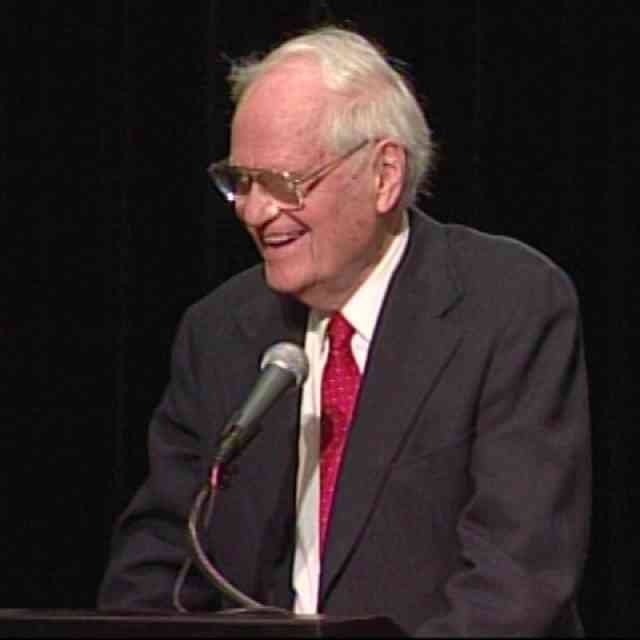By Edmund Sprunger
The man who views the world at 50 the same as
he did at 20 has wasted 30 years of his life.
Muhammad Ali
—Interview from November 1975
It was late at night on December 30th, 1981, when I first arrived in Matsumoto to study with Dr. Suzuki. I’ve been studying with him ever since. The other day, for example, as I was doing the dishes, I had a conversation with him in which I said that I didn’t think he always nurtured by love. I was quite blunt, gave him a specific example, and I filled him in on the details. He listened attentively because, well, since this conversation was in my imagination, he didn’t have much of a choice.
As I mulled over this imagined conversation, I realized that my confrontation of Suzuki-Sensei did not make me disloyal. In fact, the act of reflecting on what he had taught me, how he had taught me, and challenging all of it, was actually an act of loyalty that marked me as a Suzuki Teacher. A big aspect of Dr. Suzuki’s work was thoughtful examination of the status quo. It’s right there in the Suzuki Teachers’ Pledge: “…We will continue to study teaching in the future with much reflection, and through this continuing study we will be better able to concentrate energies toward better teaching.”1 As the author of this pledge, Suzuki recognized, I think, that he was setting the Suzuki movement in motion, but that it was up to all of us to engage with his ideas and to extend them.
“Nurture by love” is one of those ideas. Far too often, I encounter teachers and parents who think that “nurturing by love” means things such as constantly smiling and speaking chirpily, saying only positive things, playing games all the time, and—what I consider dangerous—pretending a child has accomplished something that they have not. In such scenarios as these, it’s not uncommon for these same teachers to then turn around and malign the parents and students they work with—frequently in bitter terms. At the lesson, they might smile and say to the child “That was a super job” and then, when later speaking with a teacher who was observing the lesson, lambaste the child’s rushing, intonation, attitude, etc. What troubles me the most about these examples is that while some of the specifics may have been accurate—for example, the child really did have a beautifully round pinky and was also not at all amenable to playing it slower—in the big picture, the teacher is seeing the child as made of parts. In their minds, they have not integrated the various aspects of what the child is doing into one whole person. That integration is a tall order, but nobody said this was an easy job. Far from it.
When thinking about “nurturing by love,” I like to quote Maya Angelou’s saying that when she speaks of love, “I don’t mean mush.” In this respect it’s helpful to think about the English title of one of Suzuki’s books: Where Love is Deep. Nurturing requires deep reflection.
What is it that we’re nurturing? I think we’re nurturing development. Development of musical skills, for sure, but also what we commonly call “character.” “Character,” in the sense that I am using it, does not refer to inborn temperaments, which have been well-researched by scholars such as Jerome Kagan, Alexander Thomas, Stella Chess, and Alicia Lieberman. I think of “character” as the development of what is sometimes called “the self” and sometimes called “the personality.” This development can occur for all three points in the triangle: the teacher, the parent, and the child. Three themes will weave throughout this three-part series. One theme will be to think about what nurturing means. Another will be clarifying who is nurtured, and the third theme will be how we actually nurture.
The Teacher
A teacher who wants to nurture by love first needs to nurture herself, the teacher. A teacher nurtures herself in a variety of ways. One of the first ways is by being very clear that she can not look to the parents and children she works with to nurture her. Nurturing is simply not their role. When these roles become confused and teachers seek nurturing from parents and students, all kinds of bad feelings emerge. Because this important point is easily misunderstood, it merits further elaboration.
Most parents and children silently appreciate their teacher’s efforts. This appreciation—spoken or unspoken—can provide the teacher with validation or affirmation of competence. The teacher can sense “As long as nobody’s complaining, I must be doing a good job.” However, ungrateful students and parents are likely to force a teacher to confront her invisible wish to be appreciated and adored.
Especially in Suzuki circles, I think we teachers often like to think of ourselves as selfless, devoted helpers of appreciative students and parents. We offer understanding, insight, information, caring, and affirmation, but we hope to receive gratitude and appreciation for our efforts. We commonly get enough gratitude and appreciation naturally so that everything flows smoothly. However, we occasionally encounter certain students and/or parents who not only seem indifferent towards our efforts, they thwart them at every turn. (More about this phenomenon when I discuss how we nurture parents.) The point of our work is not to win the gratitude of parents and students, but to increase their sense of understanding, to promote a growth process, and to add beauty to the world.
“Still,” as psychoanalyst Glen Gabbard, MD, says, “none of us is a saint, and we yearn for a touch of gratitude.” It is a challenge to teach ungrateful people, and when we’re in such a situation, it can feel difficult to go back to the studio. Some of the most difficult moments in lessons come from ingratitude and its impact on the teacher.
Because these difficult moments are incredibly painful and create powerful obstacles, we benefit from considering the demands they place on us and how we might prepare for them in an attempt to avoid them, and how we might process them when they occur.
A teacher can fortify her resistance to such situations through ongoing professional training. Workshops, institutes, festivals, etc., all give teachers an opportunity to get information from pedagogy sessions, to observe students and parents, and to converse with colleagues. Online forums are another source of connecting with colleagues.
Speaking with professional colleagues, even informally, can be a great place to get teaching ideas as well as to complain, to commiserate, and to process. These conversations are the place to say “I’m about to pull my hair out!” or “I want to fire them!” The crucial point here is that there’s no action, just words. It’s often helpful to have an empathic ear to share our feelings with, and the act of saying something out loud can help generate a different response than the one that’s on a loop in our heads. Please note that many of these conversations are best held in private, out of earshot of parents and children, because overhearing such teacher conversations may cause needless worry for parents and/or children, even if they study with another teacher.
Some conversations are too important and/or too delicate to be had in a café, and may benefit from a professional consultation with another teacher. Such consultations are very common for psychotherapists and psychoanalysts, who contract with a trusted colleague to discuss a case in confidence. Since this form of professional development is helpful, I have been advocating for it and offering online consultations. I recently began following the fee structure that is common with psychoanalysts—the teacher who is consulting pays the consultant [me, in this case] whatever the teacher’s hourly rate is. If it’s $30.00, she pays $30.00; if it’s $300.00, she pays $300.00.
Boundaries
Another way teachers nurture themselves is by having clear boundaries. We can’t expect people to respect our boundaries if they don’t know what they are.
One of the most important ways we communicate these boundaries is through our written policies, where we specify how fees are to be paid, the attendance requirements are for studio events (e.g., group classes and concerts), how we handle missed lessons, the best ways for parents and students to communicate with us outside of lessons, what to do if they want to transfer to another teacher, how to terminate lessons, etc.
I think it’s safe to assume that parents do not read these policies, even if they sign them. Most of us, in fact, don’t carefully read things we’re asked to sign—forms in a healthcare facility, licensing agreements for software, credit card applications, etc. And if we do read them, it’s not likely that we remember the details. We “agree” quickly so that we can click on the thing we were originally after.
Even if parents don’t fully absorb our policies from reading them, our clarity with ourselves about them helps us communicate them clearly to parents, as these policies are primarily for the teacher to self-reflect on what she is and is not willing to do: it is not a policy until the teacher has to act on it. For example, most people will pay tuition on time. But the teacher has to be clear about what she is willing to do when a parent doesn’t.
Policies are not abstract and separated from our day-to-day teaching; they contain our pedagogical ideals, and the way we teach communicates those ideals. Stated another way, since it’s likely that parents and students will not have digested them, policies primarily get communicated through the teacher’s action or lack of action. For example, our policies say “daily review is important,” but we never cover review at a lesson, we’re actually communicating that review is maybe important.
Regardless of what is and isn’t in our policy statement, people will request all kinds of things from us, and we have the right to say no. One example is the parent who asks us to make a special practice video for their child. You may not have a specific policy about that and have to decide on the spot how to respond to that request. If we make such a video outside of lesson time, we are communicating to the parent that we are available for that kind of thing and that they can expect it of us. Alternatively, we might say “Great idea! We’ll put that together at the next lesson” or “I see that there’s a time crunch right now, so I’m happy to get that to you today, but in the future, this is the kind of thing that we do at lessons.” (If there’s always “a time crunch,” you’ve got a different issue to address.)
So, one way we nurture ourselves is by being the guardians of our time. Here’s another example of how we do that. If our policy is that we stick to a schedule, then when people show up late to a lesson, we stop the lesson at the scheduled stop time. This does not make us monsters. (If there’s a monster, it’s the reality of how time and space work—something to take up with Einstein, and not the music teacher.)
One of the most difficult issues in the time category is what to do about missed lessons. It is common for teachers to have a “no makeup lessons” policy, and it is also common for parents in those studios—especially new parents—to announce that they will miss a lesson and then ask when the lesson will be made up. Such a scenario brings us back to the gratitude and appreciation issue, as the teacher is likely feeling some variation of “You were supposed to read my policies! I hate who I feel I am when I have to clarify this, because I want to be seen as all kind and nurturing!” A teacher nurtures herself by knowing that in sticking to her policy, she is, again, not a monster. She is protecting herself, because protecting herself is not the job of the parent or child. Over time, parents catch on, but if we want the parent to take care of us by not asking…so that we don’t feel bad…we’re into psychological manipulation and back to those noxious role reversals.
A final example that is about the topic of time is the issue of people showing up late for lessons or not showing up at all without giving any kind of notice. It’s rare for people to do this, but it’s not unheard of. Of course, it’s courteous if they let you know, but there can be all kinds of reasons for why they don’t. My point here is that as long as they have paid for the lesson time, it is theirs to do with as they wish. If someone misses a lesson because they are sick, they should probably be calling their doctor. If they miss because their bridge broke, then they need to call the luthier. (In the case of the bridge, they would be smart to contact me to find out that we could have a lesson anyway.) The fact that I’m not a person they call when something unexpected comes up is likely not about respect as much as them being overwhelmed.
Most parents are able to work with their teachers in a collegial, collaborative ways. If they are unable to engage with their teacher in that way, the situation can sometimes be remedied. However, if the parent can’t or won’t engage with the teacher in this way, then that says a lot about the personality structure of that person, and is outside of the work of the violin teacher.
Just as we are not owed a phone call, students don’t owe us gratitude and appreciation in the form of presents, although presents are common—especially around the December holidays—and I enjoy them very much. Similarly, they don’t owe us progress, they don’t owe us enthusiasm, and they don’t need to tell us how marvelous they think we are. They also don’t owe us practice. [If we have a practice requirement, that is a separate topic outside of what we are “owed.”]
Are all of those things nice? Absolutely! But they are not required. For the most part, what is required is that we are paid. Although there are typically plenty of healthy, naturally occurring sources of gratification for a teacher, our primary source should be money, for reasons I have outlined above.
In this brief article, I have hoped to outline a few of the main ways in which a teacher can nurture herself in a loving way. In the next installment of this series, I’ll write about how to approach parents in a way that “nurtures by love.”
When I first arrived in Japan, I was only twenty years old and I didn’t know anything about Japan or the Suzuki Method. I had just spent Christmas in Hiroshima, viewing the impact of the atomic bomb. Learning about Suzuki’s philosophy, what he thought about the world, and what he wanted to do with music education pointed my life in a direction. I have spent the last four decades exploring what “nurture by love” means and how it might change the world.
Notes
The entire Suzuki Teachers’ Pledge can be found here: https://suzukiassociation.org/teachers/teacher-trainers/teacher-trainers/suzuki-teachers-pledge/







